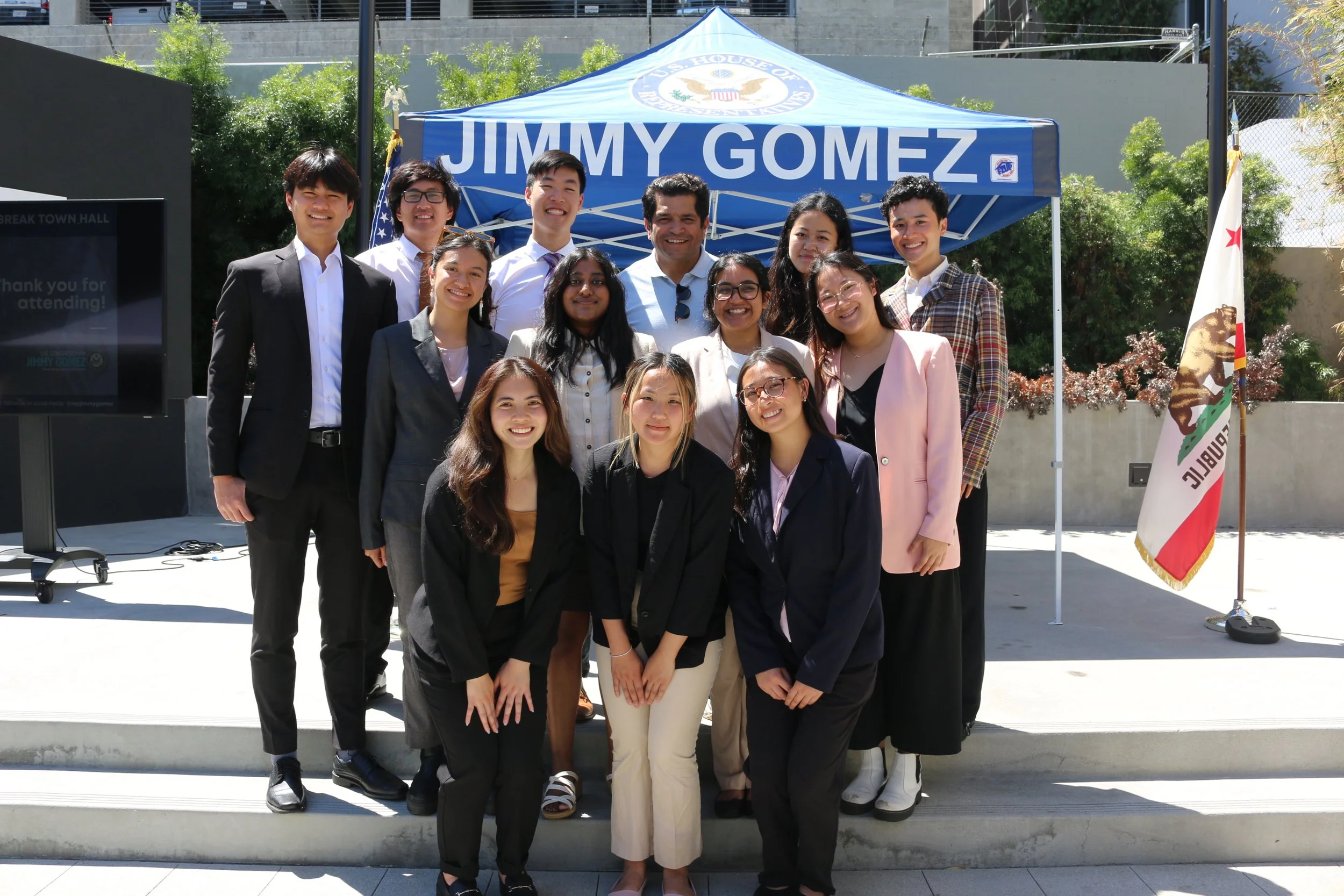When learning more about your community, its history, how to support it, and how individuals have done so in the past, there is often a particular aura of gritty positivity to the conversations. This sense of community in fighting against injustice often comes with a utopian sort of high, emphasizing the overarching goals of social justice. But as anyone familiar with advocacy and policy work knows, most of the actual work involved in accomplishing those goals is not so glorious. There are often roadblocks where you don’t expect them such as frustrations with bureaucracy and the process. Week 4 with CAUSE was a good introduction to these realities after three weeks of social justice high.
CLA Interns at Congressman Jimmy Gomez’s Youth Town Hall.
The cohort started the week by attending Congressman Jimmy Gomez’s Youth Town Hall in Little Tokyo’s Terasaki Budokan. During the event, we were witness to the responsibilities, mannerisms, and to some extent, the objectives of our congresspeople. Congressman Gomez spent his time discussing his personal backstory, his journey into the political sphere, and what he has accomplished in office. By sharing these things, his time, and his knowledge he aimed to inspire the diverse youth from his constituency that sat in his audience that day. And while it was a meaningful event that came with lessons for every young person in attendance, it was incredibly hot that day and energy was down all around. This impacted the energy and participation for the event. As the Congressman and his team engaged with us, I was also reminded that not everything that comes with working in policy is glamorous.
CAUSE Marketing and Communications Manager Farrah Su, Dr. Juily Phun, and CAUSE Executive Director Nancy Yap during a CLA session.
On Friday, we heard from some individuals who came back to the theme of policy passions they were really interested in. Beginning with Nancy Yap, Dr. Juily Phun, and Farrah Su was definitely an invigorating conversation to start the day. All three brought an intense passion, wit, and sharpness to their discussion of redistricting and the role that Asian Americans play in southern California play in it. But the main takeaway was once again a slight downer. They taught us that you can never expect everyone who might seem aligned with you to agree with you. In fact, sometimes they act in opposition to your interests. Misinformation or extraneous, strong points of view can create adversaries where you might expect allies. Thus far, we have been taught about the power of networks and allyships in influencing policy, but we were also taught about the threat of the other side. It was a new lesson for us to swallow, and a sobering discussion to think about going forward.
Finally, we also heard from Richard Calvin Chang on Friday who shared with us the struggles the Pacific Islander community faces with data disaggregation. He reminded us that we are in fact still a minority, and with the Pacific Islander community especially, data can be used to take advantage of us. Data is seen as objective, and with small sample sizes and the right framing, it can be a threat to our place in the political arena. This was, again, a powerful contrast with previous speakers who have discussed Asian American data with us in the context of improving our foothold in policy representation.
The views and opinions expressed in this publication are those of the author and do not reflect the views or positions of CAUSE or the CAUSE network.
Written by Liam Chia, Leadership Academy 2023 Intern.
The CAUSE Leadership Academy (CLA) for students is a nine-week, paid, internship program that prepares college undergraduates to lead and advocate for the Asian Pacific Islander community on their campuses and beyond.



